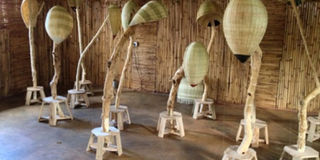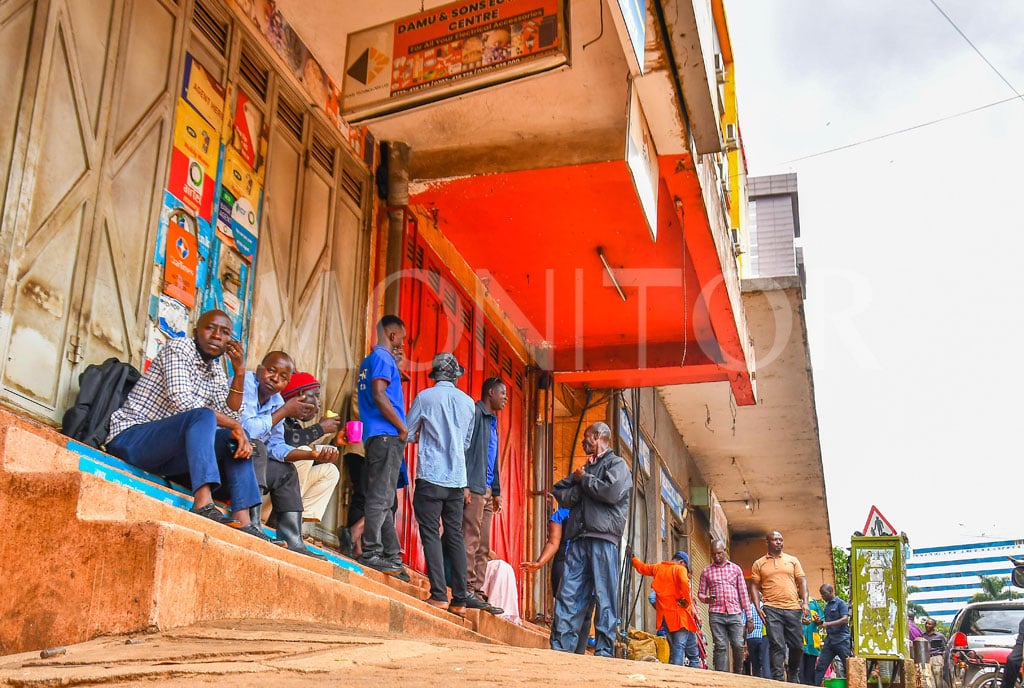Benet cultural festival reveals a rich heritage worth preserving

Benet art work on display in Kapchorwa, at their very first cultural festival. Photo by David Mafabi.
What you need to know:
Little known, the Benet are a Mt Elgon tribe with a very rich cultural heritage. They set out to share this and clear misconceptions about them at their very first cultural festival.
When one talks about the Benet, people will straight away think about backward forest dwellers, illegal encroachers and primitive human beings.
But this was demystified on December 22, when they displayed their potential by acting, singing and performing plays that depicted their lifestyle, identity, heritage and the challenges of development in the modern world.
Benet also known as Ndorobo, is a tribe that has lived in the Mt Elgon Moorland for the last 200 years. They held their first cultural festival with aid from an international art installation spearheaded by Iris Honderdos and Arno Peeters, artistes from Netherlands.
The occasion featured a close interaction with the Benet communities in Mengya, Kitowoy and Teryet, in an attempt to understand and grasp the essence and character of the Benet society.
While explaining the presentations, Honderdos said, through the prism of their perspectives, they have created a multidimensional portrayal of Benet culture, its precious heritage and its fragile existence.
“This project is part of a global initiative ‘Visualising Development with Identity’ of the Royal Tropical Institute and Makerere University but unfortunately, the Benet are mainly known for the land conflict they have with Uganda Wildlife Authorities since they were thrown out of their hitherto cradle land, in the park,” says Honderdos.
The plays, art work and songs presented at the festival were more than just notions to the Benet. These are their cultural heritage, customs and ancient beliefs and thus need to be preserved.
A Benet elder and cultural chairman, Moses Mwanga says, with their leaving the forest, much of the culture and customs have been abandoned and if it is not documented now, it will soon die.
“Our culture, songs and customs are a national heritage which Uganda should cherish for generations to come, we need our land, we need to live close to the park in order to get herbal medicines, get mushrooms, vegetables and make baskets for our living,” says Mwanga.
Cultural uniqueness
Betty Kwagala, a Makerere University researcher and sociologist says, although many a Ugandan have been referring to the Benet as people who live like wild animals, they should now be viewed as people who have a distinct culture.
“This project examines and refutes stereotypes of indigenous people. We have collaborated with indigenous people in Africa and Asia to show how indigenous cultures have changed across generations and examined the cause of these changes, so we equally believe that these people are not primitive,” says Kwagala.
Amongst the Benet, a basket (kulungut) made out of bamboo shoots is a symbol of culture and education. These baskets are coloured, then placed on poles. Every pole stands for a deceased Benet elder who was a leader in his clan.
“For example, a basket coloured black on the lower part stands for judges, green stands for prophets, red stands for fore fathers and white stands for elders who played a pivotal role in the administration of the Benet community before the colonial intrusion. But emphasis was placed on education of the young about culture,” says Mwanga.
Mwanga revealed that children were also allowed to make their own drawings on the slates made from trees.
“And they [Benet ancestors] usually grew forests, our habitat. Planting of trees to protect the environment and farming within the park depicted how we lived. Our culture emphasised planting of trees, weaving of baskets by women as the economic activity and singing especially songs of victory after a good harvest or healing from a contagious disease,” he says.
The Resident District Commissioner Kween, Joseph Okwakau says, cultural remembrance for the Benet was crucial to help redirect them on the journey to development now that they are out of the park.
“For me, this was worth it and I am asking the artistes to take the Benet to Netherlands and Kampala because they have never been outside Kween and maybe this will help them change with the times,” says Okwakau.




